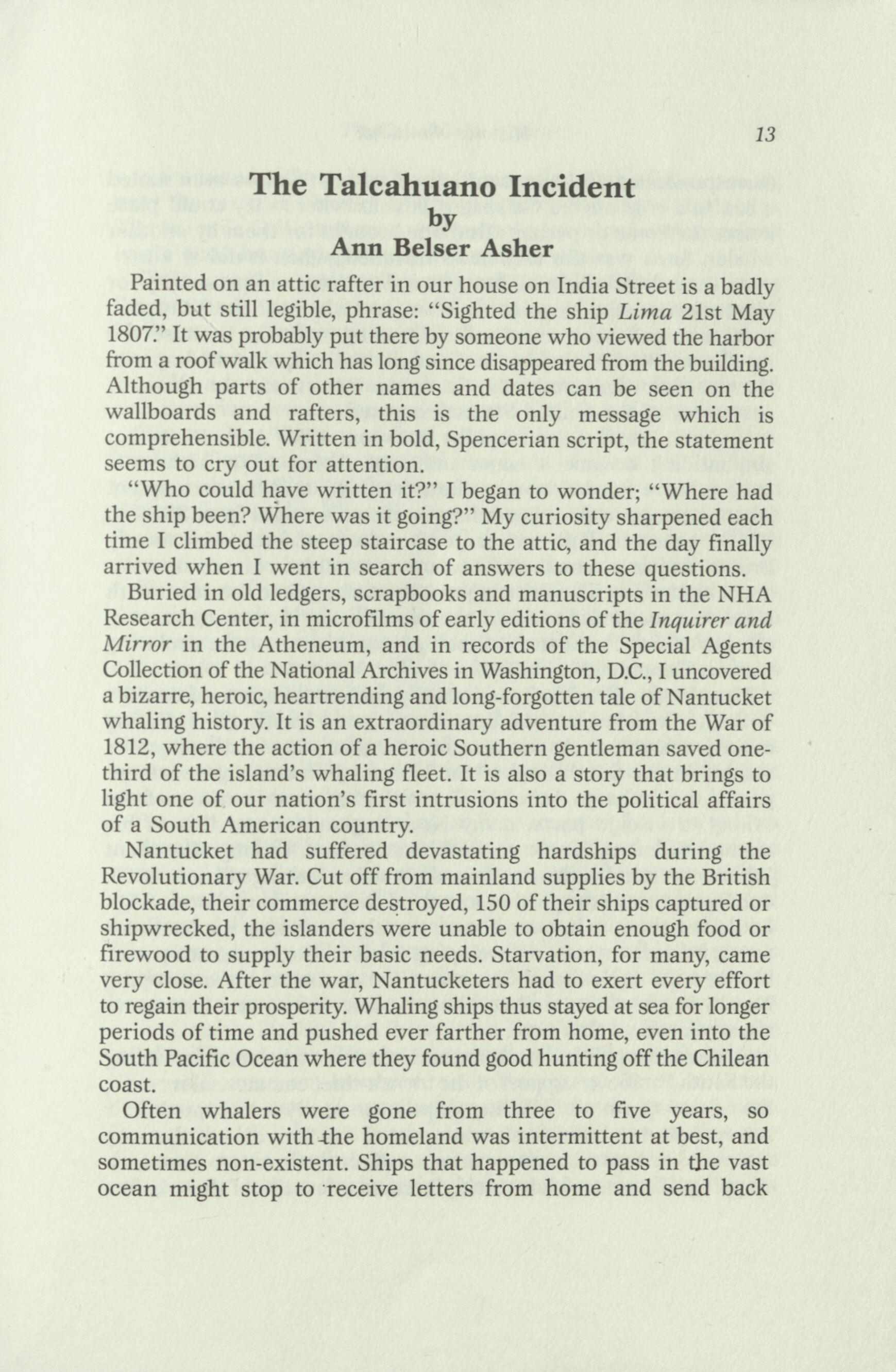
1 minute read
The Talcahuano Incident
13
by Ann Belser Asher
Painted on an attic rafter in our house on India Street is a badly faded, but still legible, phrase: "Sighted the ship Lima 21st May 1807." It was probably put there by someone who viewed the harbor from a roof walk which has long since disappeared from the building. Although parts of other names and dates can be seen on the wallboards and rafters, this is the only message which is comprehensible. Written in bold, Spencerian script, the statement seems to cry out for attention. "Who could have written it?" I began to wonder; "Where had the ship been? Where was it going?" My curiosity sharpened each time I climbed the steep staircase to the attic, and the day finally arrived when I went in search of answers to these questions.
Buried in old ledgers, scrapbooks and manuscripts in the NHA Research Center, in microfilms of early editions of the Inquirer and Mirror in the Atheneum, and in records of the Special Agents Collection of the National Archives in Washington, D.C., I uncovered a bizarre, heroic, heartrending and long-forgotten tale of Nantucket whaling history. It is an extraordinary adventure from the War of 1812, where the action of a heroic Southern gentleman saved onethird of the island's whaling fleet. It is also a story that brings to light one of our nation's first intrusions into the political affairs of a South American country.
Nantucket had suffered devastating hardships during the Revolutionary War. Cut off from mainland supplies by the British blockade, their commerce destroyed, 150 of their ships captured or shipwrecked, the islanders were unable to obtain enough food or firewood to supply their basic needs. Starvation, for many, came very close. After the war, Nantucketers had to exert every effort to regain their prosperity. Whaling ships thus stayed at sea for longer periods of time and pushed ever farther from home, even into the South Pacific Ocean where they found good hunting off the Chilean coast.
Often whalers were gone from three to five years, so communication with -the homeland was intermittent at best, and sometimes non-existent. Ships that happened to pass in the vast ocean might stop to receive letters from home and send back




